
The WEIRDEST stores in the USSR
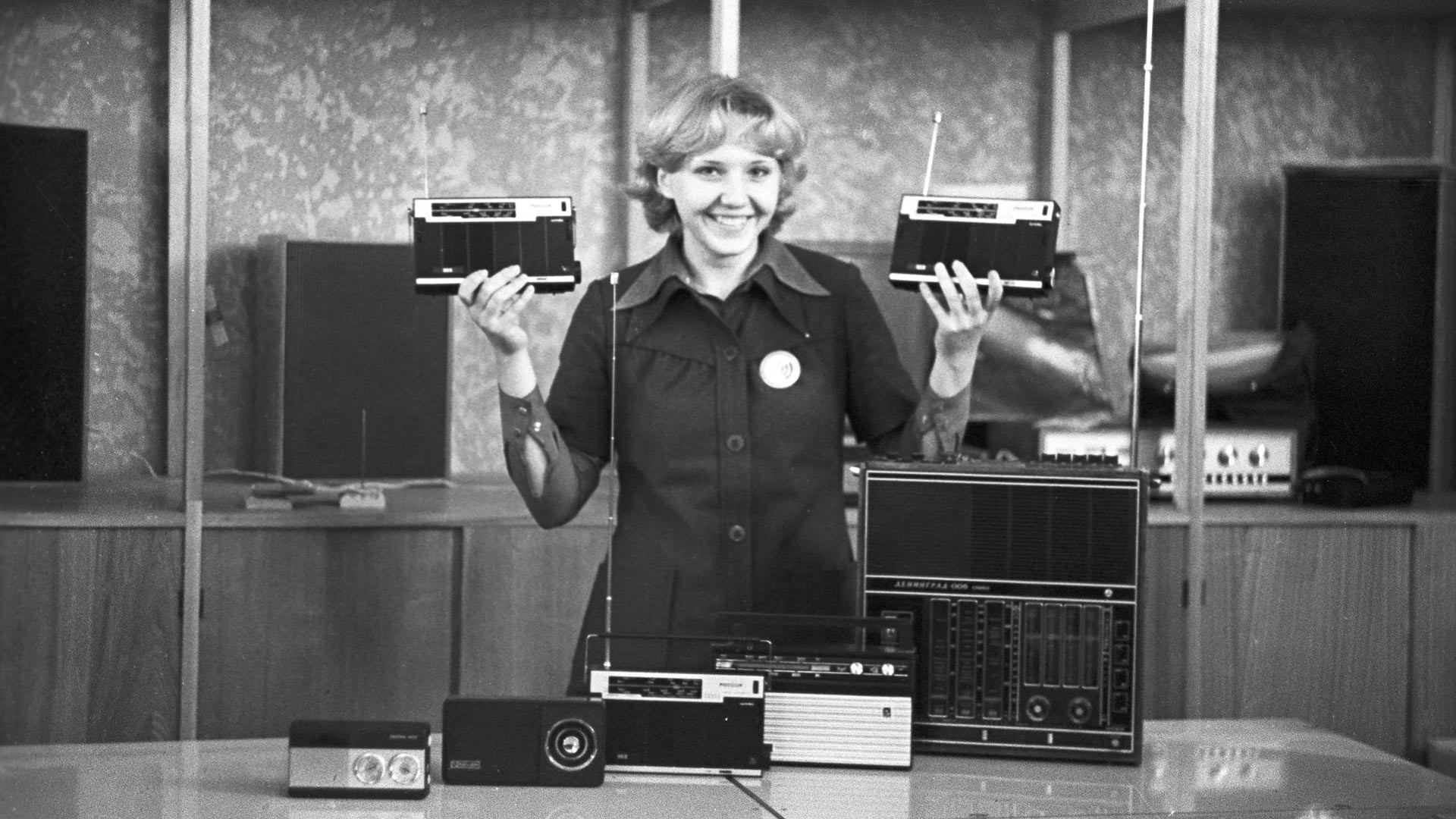
Electronics
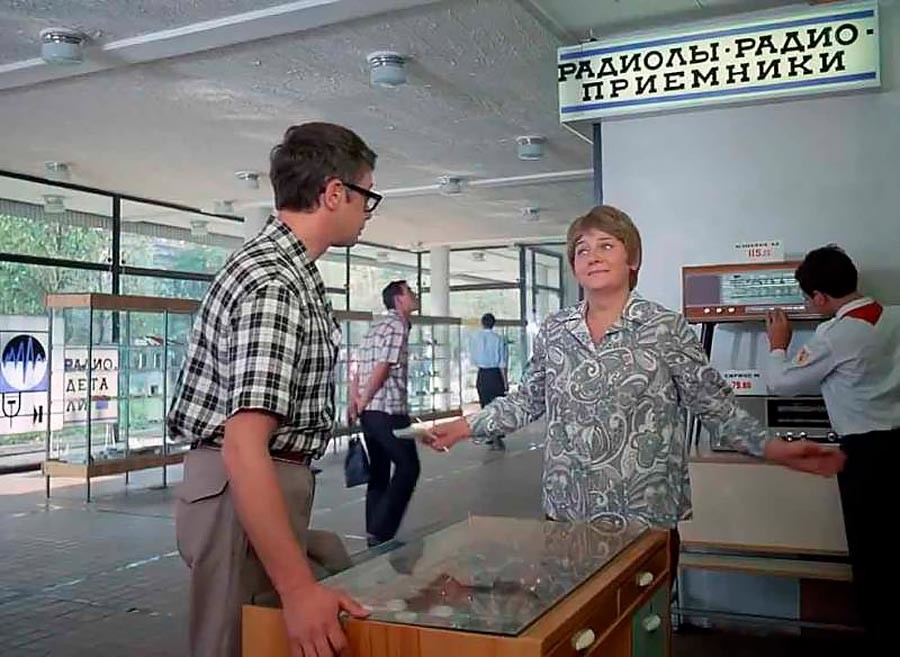 Ivan Vasilievich: Back to the Future
Ivan Vasilievich: Back to the Future
In the classic Soviet comedy film Ivan Vasilyevich Changes Profession (a.k.a. Ivan Vasilievich: Back to the Future), tsar Ivan the Terrible gets stuck in the USSR when the time machine of madcap scientist Shurik breaks down. The scientist spends half the film running around Soviet electronics stores looking for the part he needs to fix his brainchild.
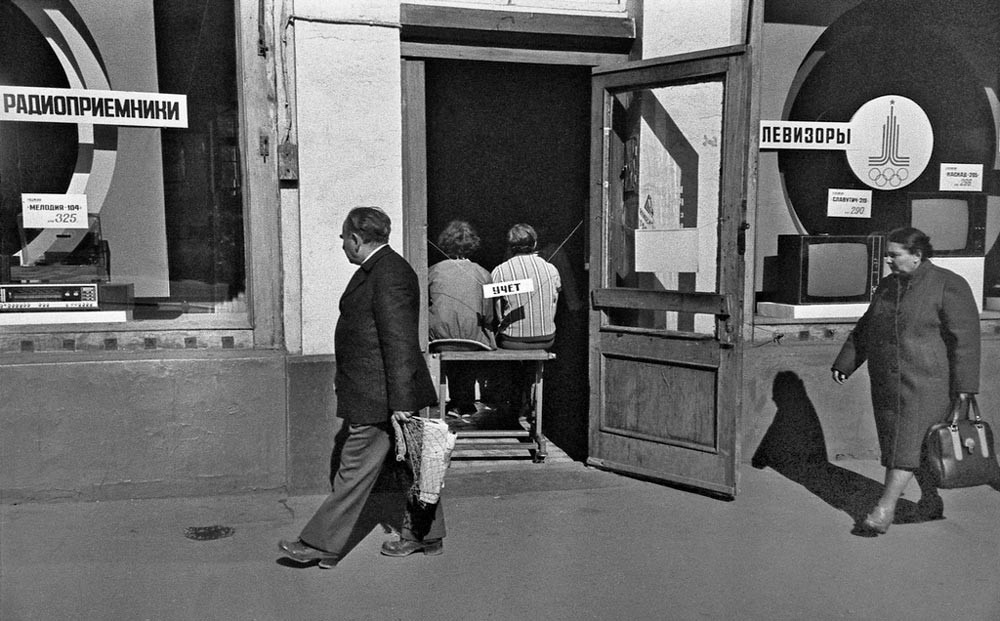 A store selling radio parts
A store selling radio parts
There were indeed lots of electronics stores in many cities, and Soviet tinkerers often assembled their own radios from spare parts, repaired TVs – and probably could have built a homemade rocket if they'd tried.
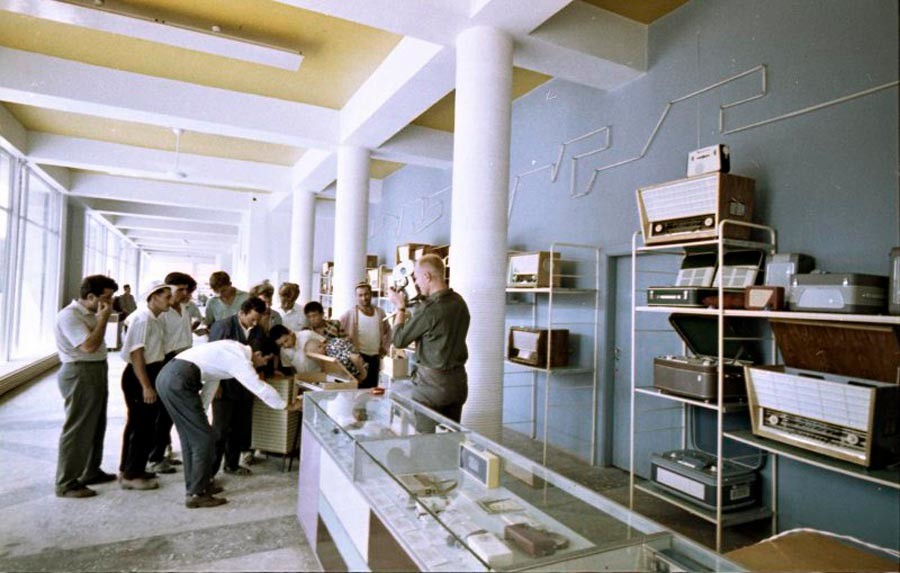 Radio store, 1963-1965
Radio store, 1963-1965
Radioactive goods
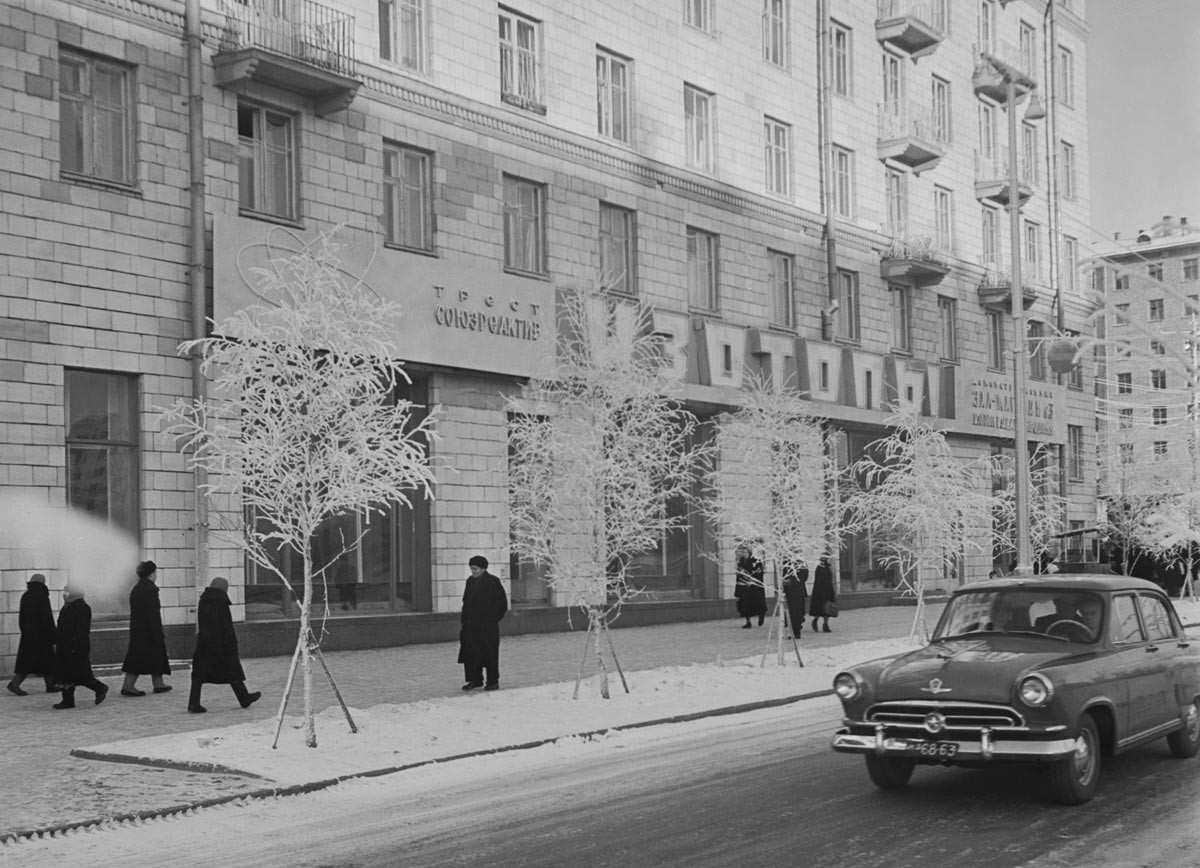 'Izotopy' store in Moscow, 1959
'Izotopy' store in Moscow, 1959
"Izotopy" was the name of a specialized store in Moscow where you could buy... radioactive material! The USSR wanted to introduce “the peaceful atom” into everyday life. Radioactive isotopes could be used to preserve potatoes, get rid of sewage leaks and even count fish.
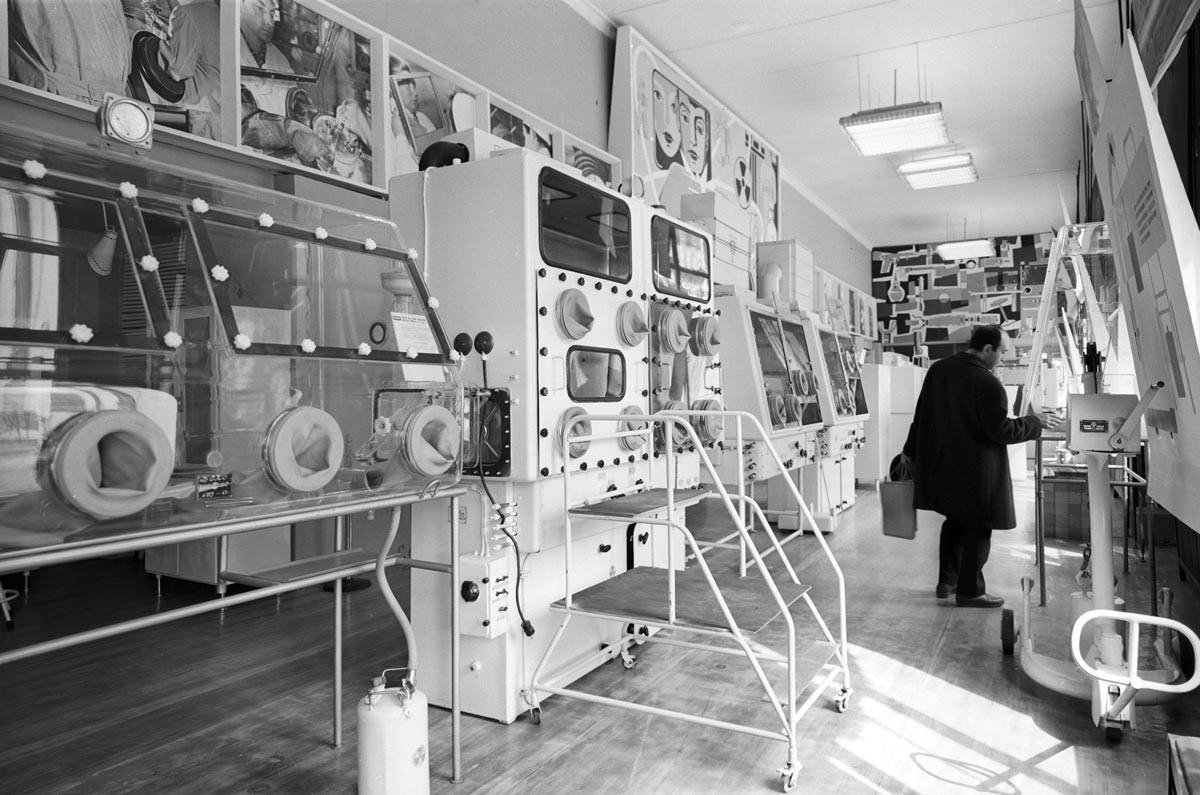 In a radiation store
In a radiation store
Of course, not everyone was allowed to purchase isotopes, and the special anti-radiation container had to be returned to the store. Read more about the sale of isotopes here.
Synthetics
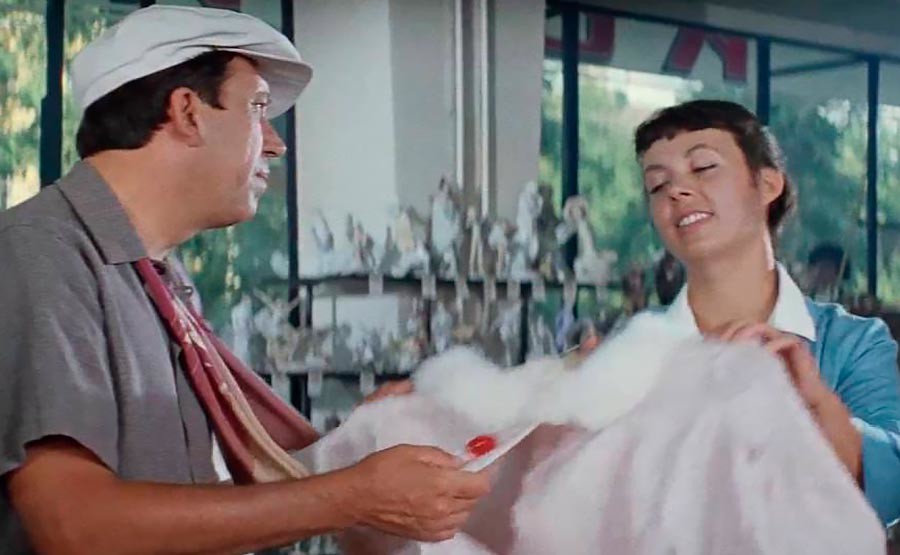 A still from 'The Diamond Arm' movie
A still from 'The Diamond Arm' movie
The hero of another classic Soviet film, The Diamond Arm, runs around countless stores selling absolutely identical dressing gowns and asks: "Do you have the same as this, only with mother-of-pearl buttons?" The phrase has become a meme.
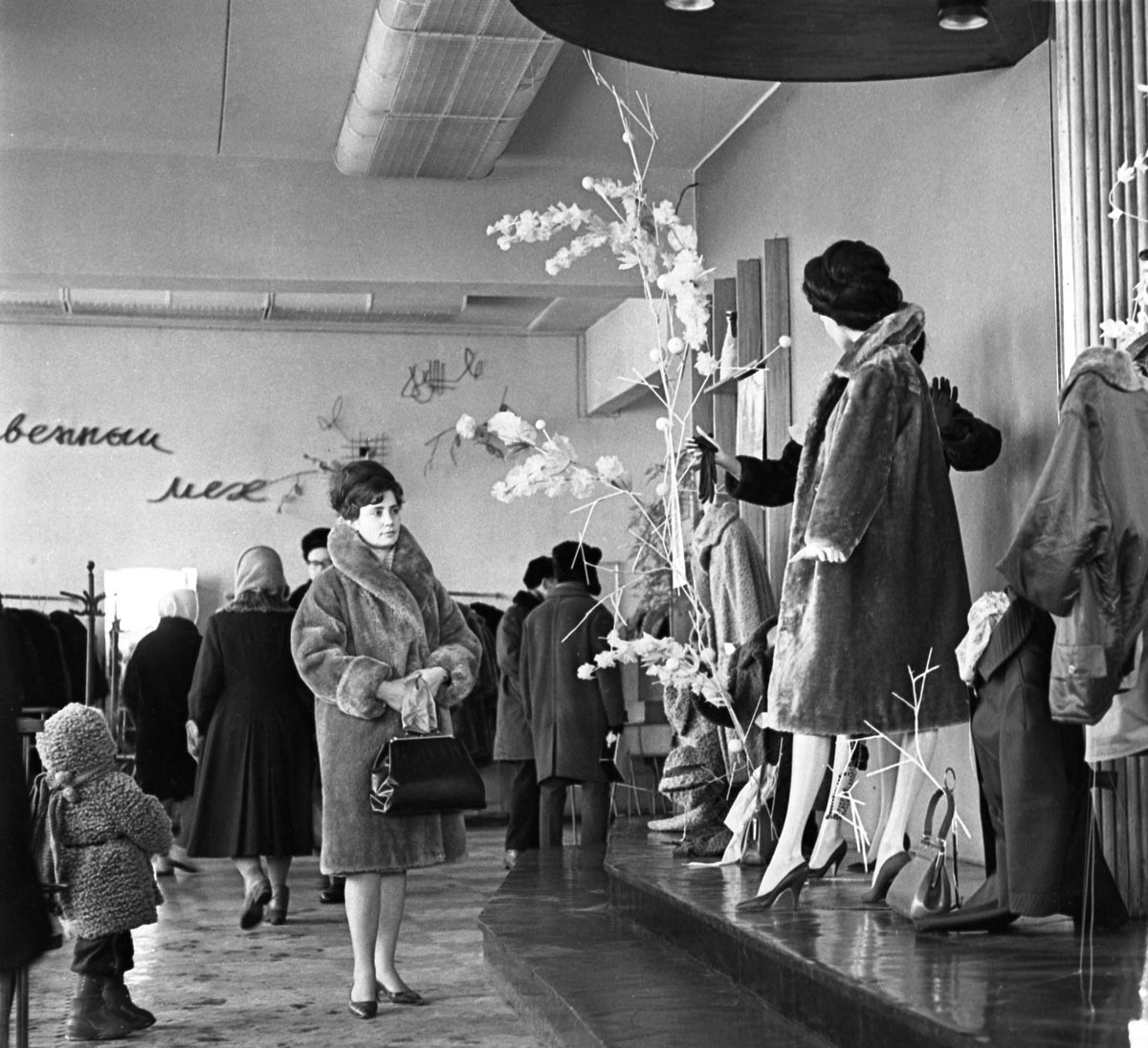 The Synthetics store on Moscow's Kalinin Prospekt, now Novy Arbat Street, 1965
The Synthetics store on Moscow's Kalinin Prospekt, now Novy Arbat Street, 1965
In the USSR, clothes were typically made from natural materials: cotton and chintz dresses, woolen suits... But all Soviet women dreamed of foreign Crimplene outfits. First, they came in the widest variety of bright colors, and second, they were very easy to launder and almost never creased.
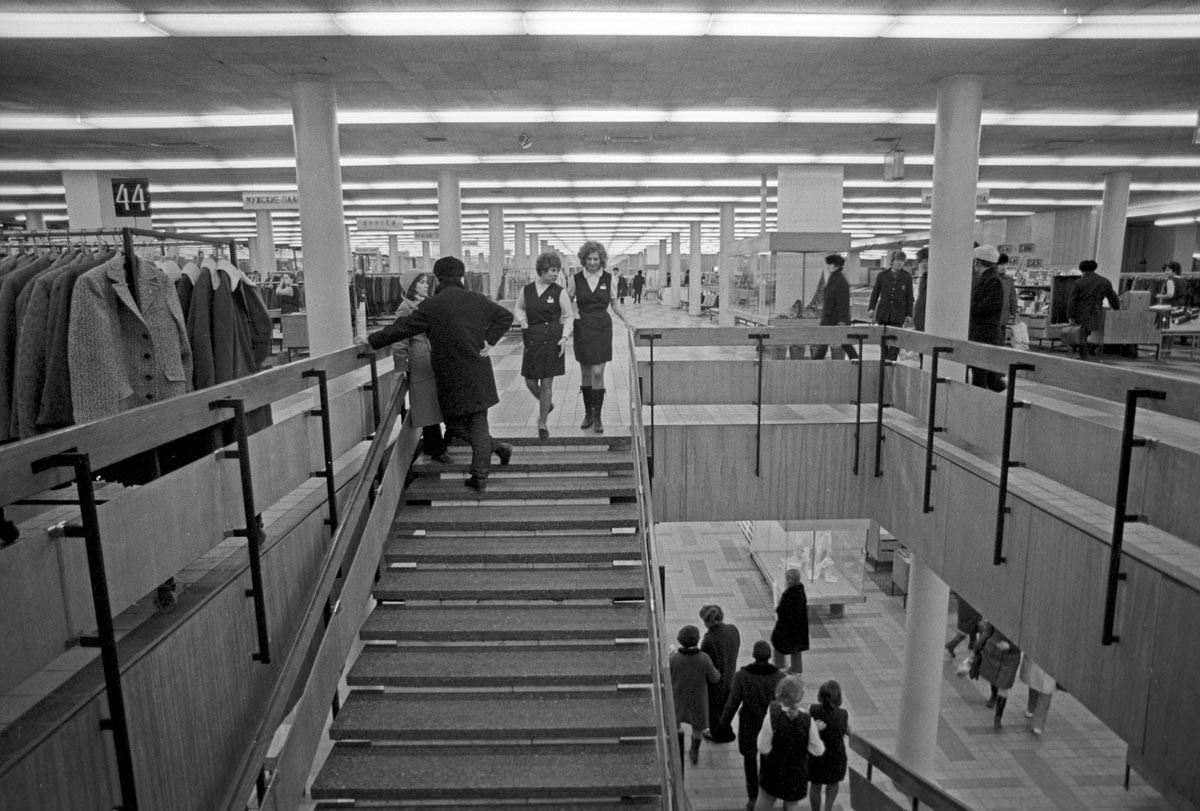 The Synthetics store on Kalininsky Prospekt (Novy Arbat) in Moscow, 1973
The Synthetics store on Kalininsky Prospekt (Novy Arbat) in Moscow, 1973
In the late 1950s-60s, specialized synthetics stores appeared in the center of Moscow and other large cities. They also sold outerwear, suits and women's outfits. The price tag was hefty (and the static electricity could have powered a medium-sized country), but beauty demands sacrifices!
Mushrooms
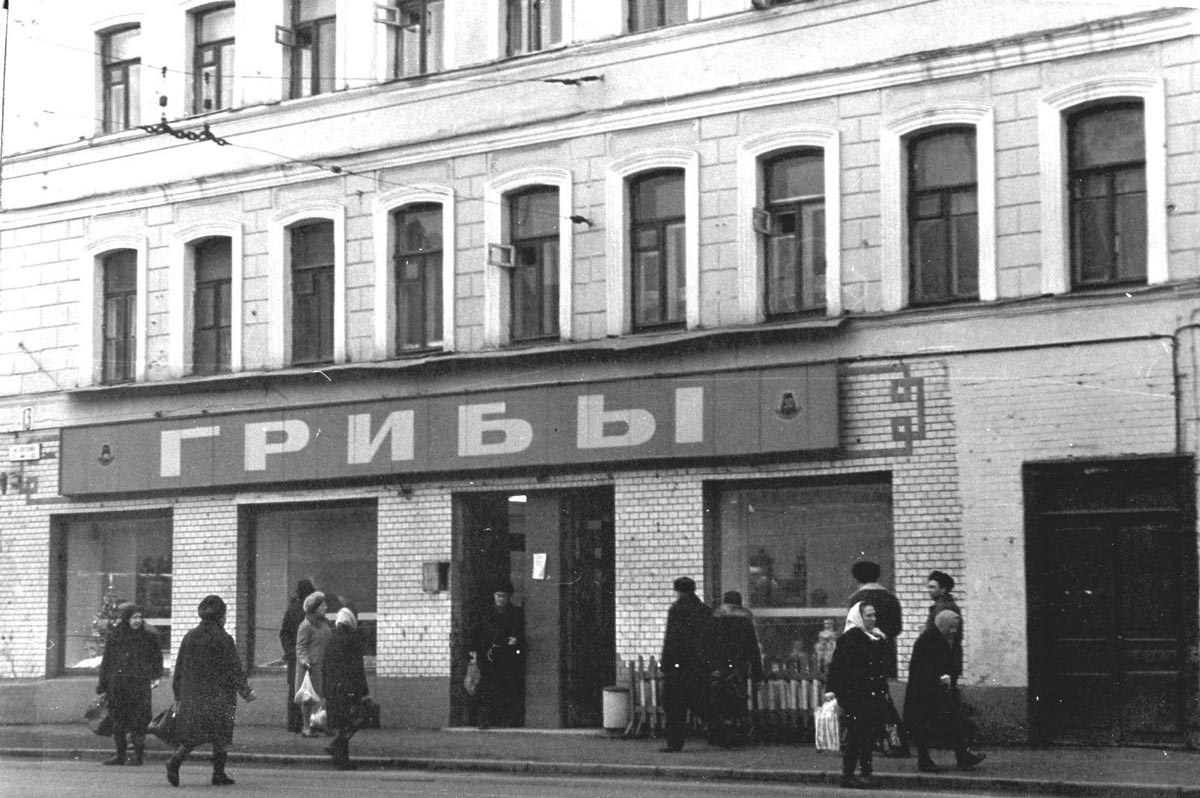 Mushrooms store at Sretenka Street,
Mushrooms store at Sretenka Street,
Mushrooms were (and remain) a true Soviet and Russian passion. Many people picked them in the forest and knew all the different types and best mushrooming places. But for those who didn't have the time or opportunity for mushrooming, there were special “Griby” (mushrooms) stores.
Behind the counters were large tubs of dried and salted mushrooms sold by weight. Especially popular were chanterelles and saffron milkcaps. Later, these stores started selling other gifts of the forest and were rebranded as mushroom-berry shops.
Chemicals
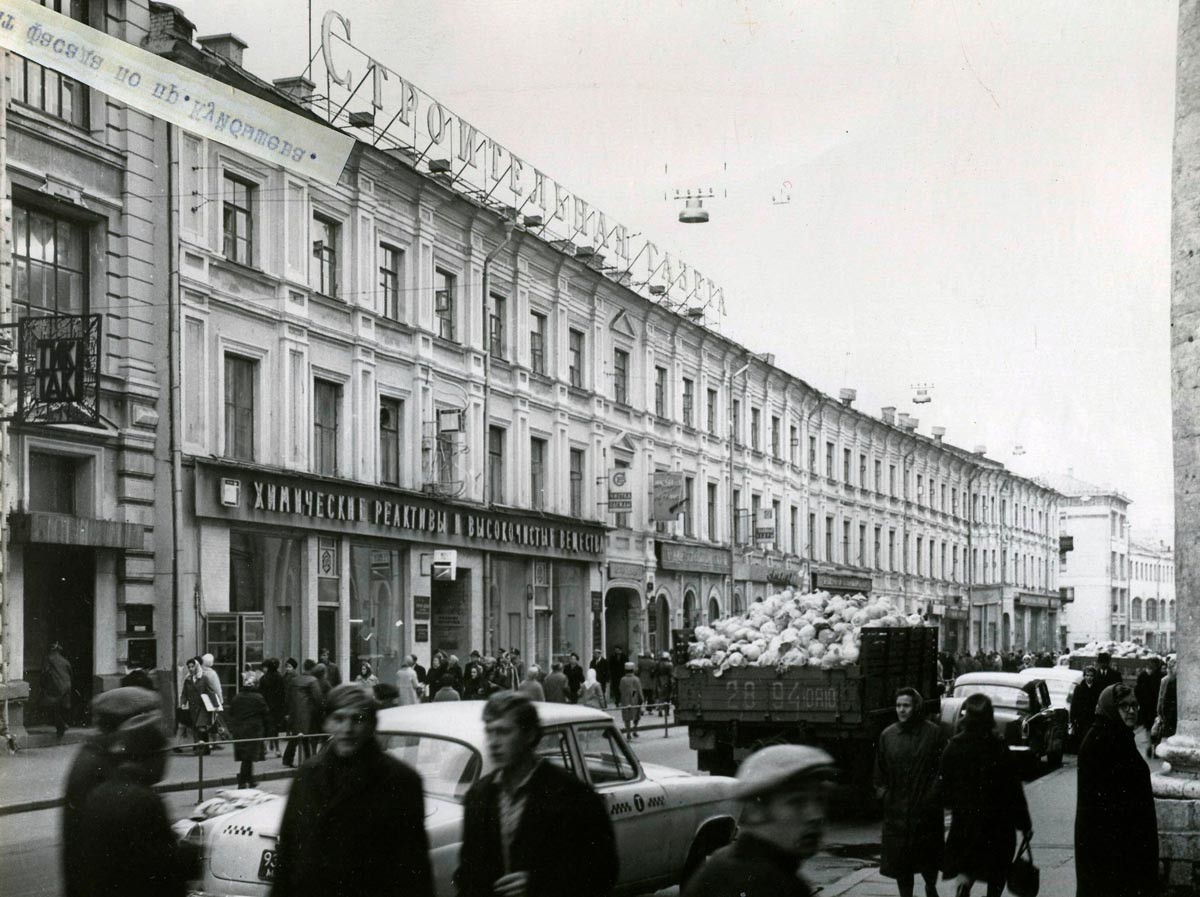 Chemical Reagents and High-Purity Substances store at Nikolskaya Street
Chemical Reagents and High-Purity Substances store at Nikolskaya Street
Not far from the Kremlin stood a store named “Chemical Reagents and High-Purity Substances” — jokingly referred to as the “young terrorist’s shop” because school students often went there to buy materials for chemistry experiments.
Vending machine products
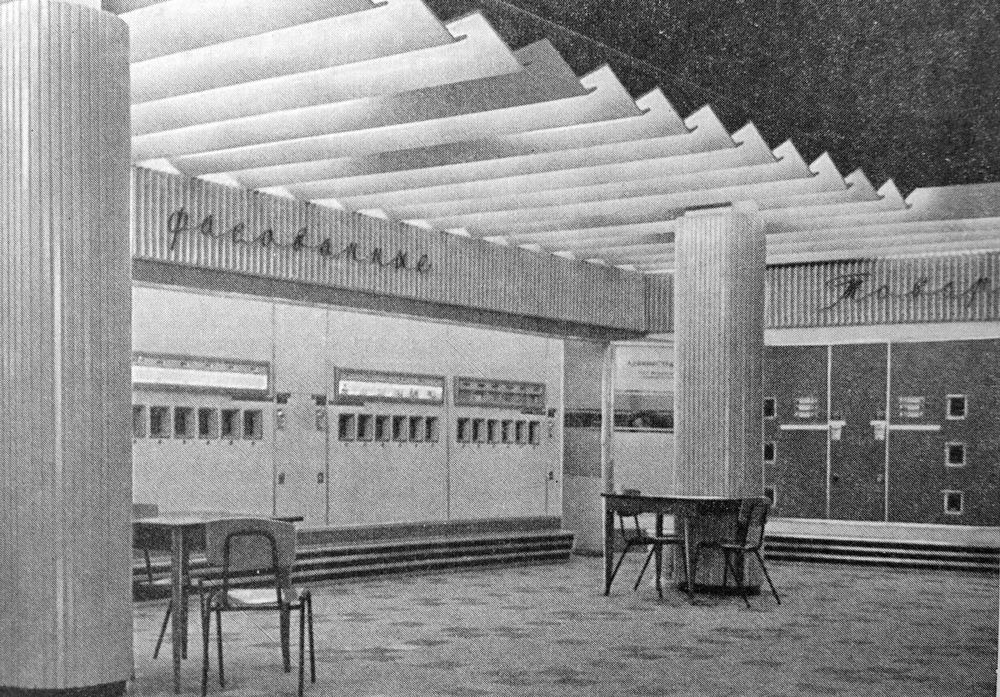 Progress store, 1969
Progress store, 1969
Central Moscow had its very own store of the future, called Progress. In it was the very first vending machine in the country. The product range was small: bottled dairy products — milk, kefir, ryazhanka (baked milk), as well as smetana in cans. You could also buy sandwiches and vegetable oil on tap. And no one left the store without a bagful of delicious glazed curds.
Read more: What could you buy in vending machines in the USSR?
1000 Trifles
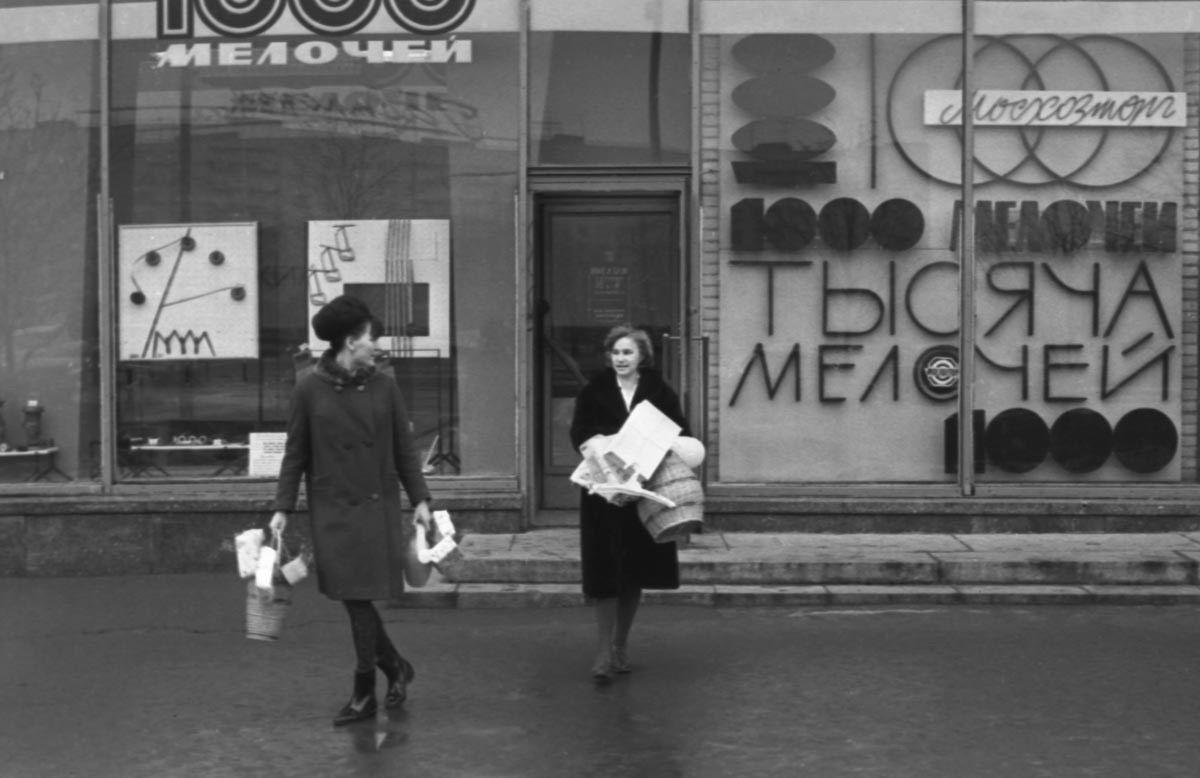 1000 Trifles store, 1966
1000 Trifles store, 1966
The popular 1000 Meloches (Trifles) stores were iconic in their day, and some still survive. There, shoppers could buy all sorts of household goods: locks, bells, nails, buttons, spoons, pencils, string bags and much more besides.
Second-hand, a.k.a. komissionki
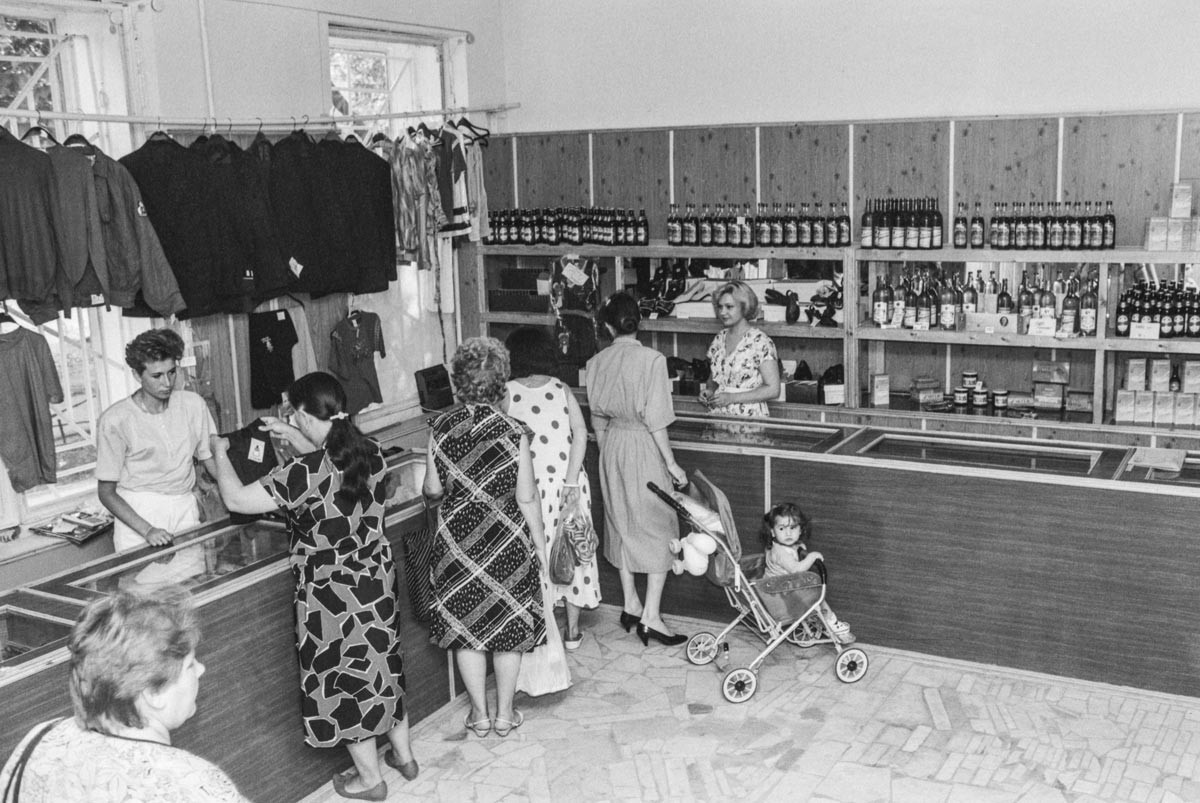 Commercial thrift-store
Commercial thrift-store
Commission stores, or komissionki, were particularly popular in the USSR. The Soviet authorities created a whole chain of these second-hand stores to fight the black-market resellers. Such stores were essentially intermediaries between those selling (who paid a commission to the store) and those buying. They were full of old and unwanted bits and pieces. That said, it was possible to find imported shoes and clothes, worn or repaired, but in fair condition and on sale for a song. They also sold decent, albeit old, photo and video equipment.












